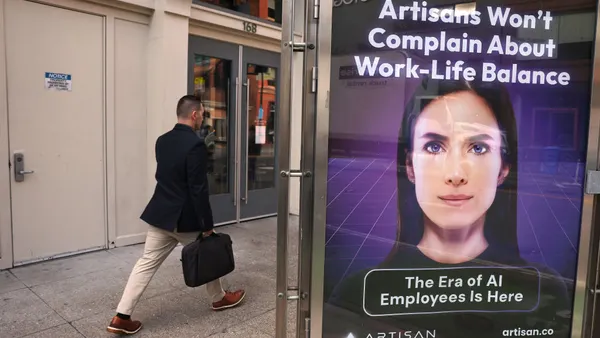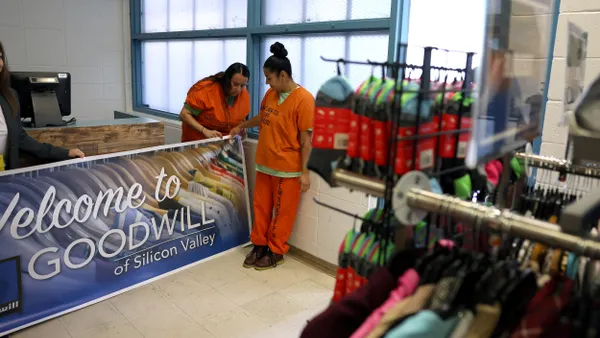Dive Brief:
- Employees are voluntarily quitting over work flexibility concerns, according to a recent survey conducted by business review website GoodFirms. The company found that 70% of HR manager respondents pointed to flexibility as a reason for resignations, the most cited cause in the survey.
- Meanwhile, more than one-third of employee respondents said they still wanted to work from home, and 38% said they feared getting infected while working in an office. As debates around vaccine mandates continue, more than 50% of employees in GoodFirms' survey said they supported employers' vaccine mandates.
- GoodFirms also queried employees about their job satisfaction, finding that more than 20% of employees were unsatisfied with their current salary and more than one-quarter were unsatisfied with their pay increments and promotions. Rising costs for utilities, food, travel, housing and other items may play a role in fueling this sentiment, GoodFirms said.
Dive Insight:
The findings may not impart much of anything new to HR teams given past research on flexibility's pull in the current labor market, but they may reaffirm the approaches organizations take moving forward. For example, a September report from Limeade found that more than 1 in 4 workers who left their jobs during the pandemic did so without another job lined up, with many citing a lack of flexibility as a contributing factor.
And the train leading the so-called Great Resignation has not slowed going into 2022; the U.S. Bureau of Labor Statistics published data Tuesday showing that, in the month of November, U.S. workers quit at a rate of 3%, matching a record high last recorded in September.
The volume of quits also has a dual impact. Workers who have stayed on with their current employers during the Great Resignation reported a variety of negative impacts in an October study by the Society for Human Resource Management. SHRM found 52% of workers who remained said they took on additional work and responsibilities, while 30% said they were struggling to complete their work. The trend also spurred questions about loyalty, loneliness, isolation and pay among those surveyed, SHRM said.
Still, some observers — including those who claim to have foreseen the attrition trend — believe employers need to avoid a simplistic view of flexibility. Rather than viewing flexibility as a sliding scale between remote, hybrid and in-person work, employers may decide to take a more holistic approach. A more innovative view, some argue, could include experimentation with shift scheduling and breaks, among other ideas.













